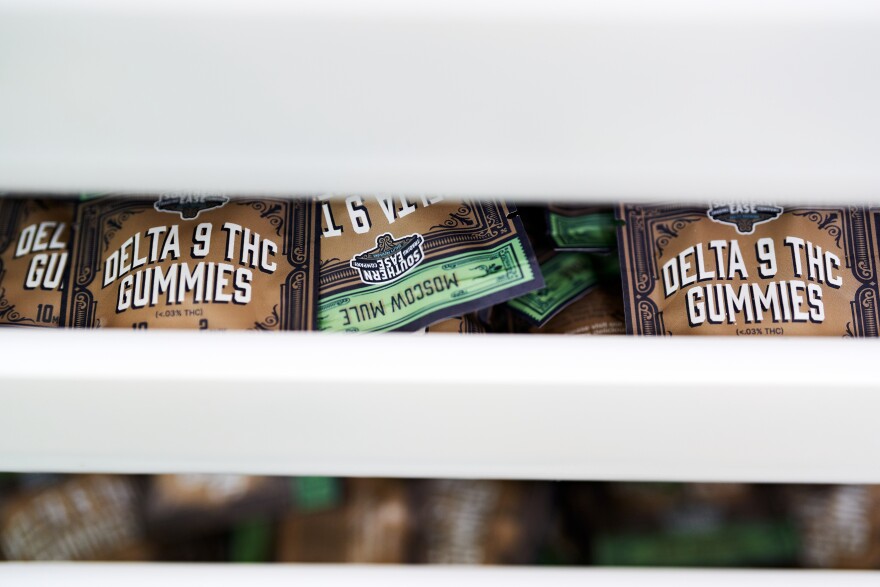Boards of education and other public school leaders would need to craft bills banning the use of most hemp products on school grounds under a bill that is moving in the N.C. House of Representatives.
If it becomes law, would require local school leaders to adopt policies banning the use of most products containing any hemp-based compounds on school grounds. The policies would need to be in effect at the beginning of the 2025-26 school year.
The ban would apply to products containing 15 specific compounds derived from hemp. Those include CBD oil and products containing both delta-8 and delta-9 THC.
“Despite being considered less potent than Delta-9, both substances can still have negative effects particularly for minors and pose potential health risks like impaired cognitive function and judgment,” Rep. Carla Cunningham, a Charlotte Democrat, said during Tuesday’s committee meeting.
Cunningham is one of the bill’s primary sponsors, along with three House Republicans.
THC is what causes people smoking or ingesting marijuana to feel high. Delta-8 and delta-9 are different forms of it, with delta-9 more potent and in plants.
If a plant contains more than 0.3% of delta-9, it is considered marijuana and is illegal to possess in North Carolina. Below that threshold, the plant is considered hemp and is legal.
A laboratory test is necessary to determine delta-9 levels.
Neither North Carolina nor the federal government have an age restriction on the possession, purchase or use of hemp products.
“Presently, there is very little government oversight of hemp products in North Carolina. In addition to not requiring proof of age to purchase or possess the products, there is no requirement for a vendor to hold a special license or registration to sell hemp in North Carolina. Nor is there any standardized quality control,” Phil Dixon, a UNC School of Government associate professor who works with public defenders, .
Sale of hemp-derived consumable products in the state started to boom after the approval of the federal government's 2018 Farm Bill, which legalized hemp.
Often, the packaging on those products is designed to look like regular snacks or drinks. The Food and Drug Administration sent a letter to one Raleigh hemp shop warning that its Stoney Patch THC watermelon gummies and Stoneo Delta-8 THC Oreos to snack foods commonly eaten by children, NC Health ����app reported.
The FDA has warned that it has not evaluated or approved Delta-8 for safe use and that the synthetic process some manufacturers use to manufacture the compound could involve the use of unsafe chemicals. Delta-8 products should be , the agency said.
House Bill 328 also clarifies that the prohibition of tobacco on school grounds extends to all vaping products. Cunningham described how, in late 2023, Raleigh's Leesville Road High School needed to close half of its bathrooms after vaping incidents caused recurring fire alarms, and Charlotte-Mecklenburg Schools reported 758 documented uses of a vaping device on school grounds during the 2023-24 school year.
School boards are each addressing vaping in different ways, Cunningham said.
"What we're trying to do here is to put something in place that would be unified, that all school boards and school districts would have available to them as a tool," Cunningham said.
After the Health Committee approved the bill, it will head to the K-12 Education and then Rules committees. From there, it will head to a vote of the full House and would then begin its path through the Senate.
A similar bill in the Senate, the Protecting Our Community Act, includes the ban on consumable hemp-derived products in schools but would also to establish that the people to whom they are selling hemp products are at least 21 years old. It would also make it illegal for people under 21 to purchase or possess consumable hemp products.







